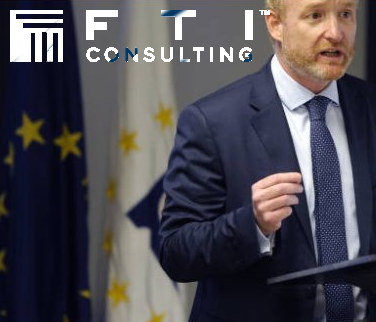

WE REGRET to say and to see that nothing has changed for the better under António Campinos, except the whitewashing. As insiders can attest/say anonymously -- as some do -- things have gotten even worse in some aspects.
"The relationship may nowadays seem symbiotic because the EPO is also publicly supporting patent trolls."Yesterday we saw the European Patent Office (EPO) once again associating with patent extremists who attack courts and attack judges, having already attacked a technical Director of the U.S. Patent and Trademark Office (USPTO) until she was replaced by Iancu, who serves law firms and patent trolls, not science and technology. The relationship may nowadays seem symbiotic because the EPO is also publicly supporting patent trolls. This wasn't always the case. Far from it...
Not too long ago the EPO set up a conference that invited patent trolls to lead a discussion (as lead panelists, not just conferees), promoting illegal software patents in Europe under the guise of "blockchain". The EPO brought that up again yesterday when it asked: "How does CNIPA deal with #blockchain patents?"
"Well, the EPO even granted patents on chewing gums."The EPO also retweeted this nonsense which said: "There are 5,050 #patents related to #skiing in the @EPOorg database ... #IntellectualProperty is everywhere..."
Well, the EPO even granted patents on chewing gums. EPO insiders are joking at this; they're upset to see the rapidly-declining quality of European Patents these days. Judges too seem to be realising that there's an issue.
A new press release, pinned in Associated Press and elsewhere, speaks of a patent being revoked. To quote:
Today the European Patent Office revoked Pacific Biosciences patent EP3045542 with claims to a single molecule sequencing process wherein two strands of DNA are linked by a connecting nucleic acid. The validity of the patent had been challenged by Oxford Nanopore.
The EPO ruled that the claims to a single molecule sequencing process were unsupported in the application and that the application only supported a template-directed synthesis sequencing method. As Pacific Biosciences were unwilling to accept this change, the patent was revoked.
The European Patent Office (EPO) has revoked a patent held by a US biotechnology company, Pacific Biosciences, after its UK-based rival Oxford Nanopore Technologies challenged the validity of the patent.
Oxford Nanopore announced the news in a press release today, January 23. The EPO granted Pacific Biosciences the now-invalidated patent (EU number 304552) in 2016 for “methods for nucleic acid sequencing”.
Regen Lab's patent was challenged by Estar Medical. This UK judgment adds to the recent German court's decision denying Regen Lab's patent infringement claim against Estar Medical, the European Patent Office preliminary opinion which found the same Regen Lab patent to be invalid on multiple grounds and the venue judgment in New York in which Regen Lab lost its case against Estar Medical.
[...]
Regen Lab had attempted to enforce its European Patent No. 2073862 against Estar Medical who, in turn, counter-claimed that the patent was invalid. The UK Court agreed with Estar Medical's position and revoked the patent. In its ruling, the UK Court stated that the Regen Lab patent "is invalid for lack of novelty and inventive step. Regen's application to amend the Patent is refused on the ground that the amended Patent would still be invalid". The court also found Regen Lab's owner and CEO, Mr. Antoine Turzi, to be "not a reliable witness". Estar Medical is pleased that the UK Court ruled in its favor, agreeing that the Regen Lab patent lacks both novelty and inventive step. Estar Medical has remained confident throughout the case of its ability to sell its leading products in the UK and elsewhere and is gratified to see that confidence affirmed by the UK Court.
Second medical use claims are used before the European Patent Office (EPO) for inventions involving additional or improved treatments using already known drugs. For example, using a known drug to treat a different disease or changing the dosage regimen of a known drug to provide a better effect or to treat a different patient group. In the context of second medical use claims the EPO has made it clear that the therapeutic effect must be made plausible...
"Until or unless the EPO takes patent scope and patent quality seriously (those two things are intertwined and related) it does not work for Europe but for law firms and patent trolls."These are just software patents. The EPO has just tweeted: "How does the EPO deal with the challenges of AI in patent applications? Find out here: http://bit.ly/AIpatents"
There is no such thing as "AIpatents"; those are just software patents where algorithms are spun as "AI". As usual, however, the Office keeps granting software patents in clear defiance of its own rules, the EPC, EP, courts and common sense. Why does it get called "European Patent Office" if it's there just to harm Europe? That's what I told the FFII's President after he had pointed out this new article from Rose Hughes of IP Kat, in which she promoted European software parents. Here's one example:
WO2018064591 (Generating video frames using neural networks, see full file here) has now entered the EP regional phase, i.e. it is now in the hands of the European Patent Office. DeepMind took the unusual step of entering the EP regional phase early (5 months before the January 2019 deadline). The majority of applicants wait until the deadline for entering the EP regional phase. Applicants generally request early entry when they wish to achieve a quick grant. Given that DeepMind has purportedly indicated that their patent strategy is defensive, why the hurry?